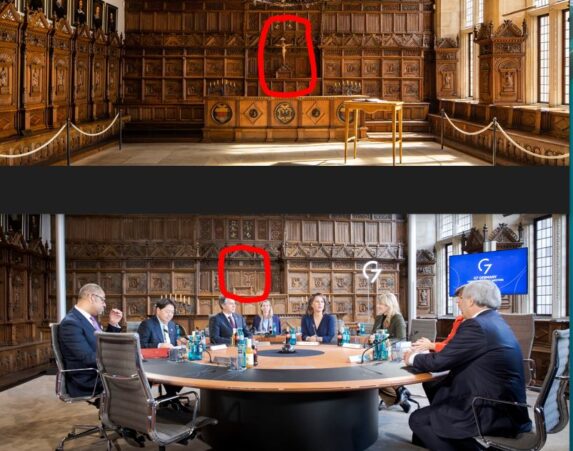The Foreign Minister of Germany, Annaleena Baerbock, has apologised for the removal of a historic crucifix from the venue of a meeting of G7 leaders.
The ‘Peace Hall’ in Münster is where a treaty marking the end of the Thirty Years war had been signed.
Ironically, Ms Baerbock chose the venue for its historic symbolism: “The Peace of Westphalia is a cradle of modern international law; it is where fundamental concepts such as the equality and sovereignty of states were negotiated for the very first time in a large peace agreement. We must preserve this heritage. That is why, in these difficult times, I very consciously chose this symbolic location for our meeting”.
According to the city of Münster, employees of the foreign office asked for the cross to be removed because people with different religious backgrounds were taking part in the G-7 meeting.
Faith leaders and opposition politicians had sharply criticised the move. The chairwoman of the Council of the Evangelical Church in Germany (EKD), Annette Kurschus, called the step “completely incomprehensible, even verging on the grotesque”.
“The religious war was ended under this cross in the Friedenssaal in Münster and Europe was pacified with it,” says the theologian, who is also president of the Westphalian state church. The diocese of Münster also called the measure “incomprehensible” while the chairman of the Central Council of Muslims, Aiman Mazyek, also expressed his puzzlement.
On Friday, Ms Baerbock issued an apology. “I’m very sorry,” she said, “The cross is part of the history of this place. I would have liked it if we hadn’t put it away.”

















